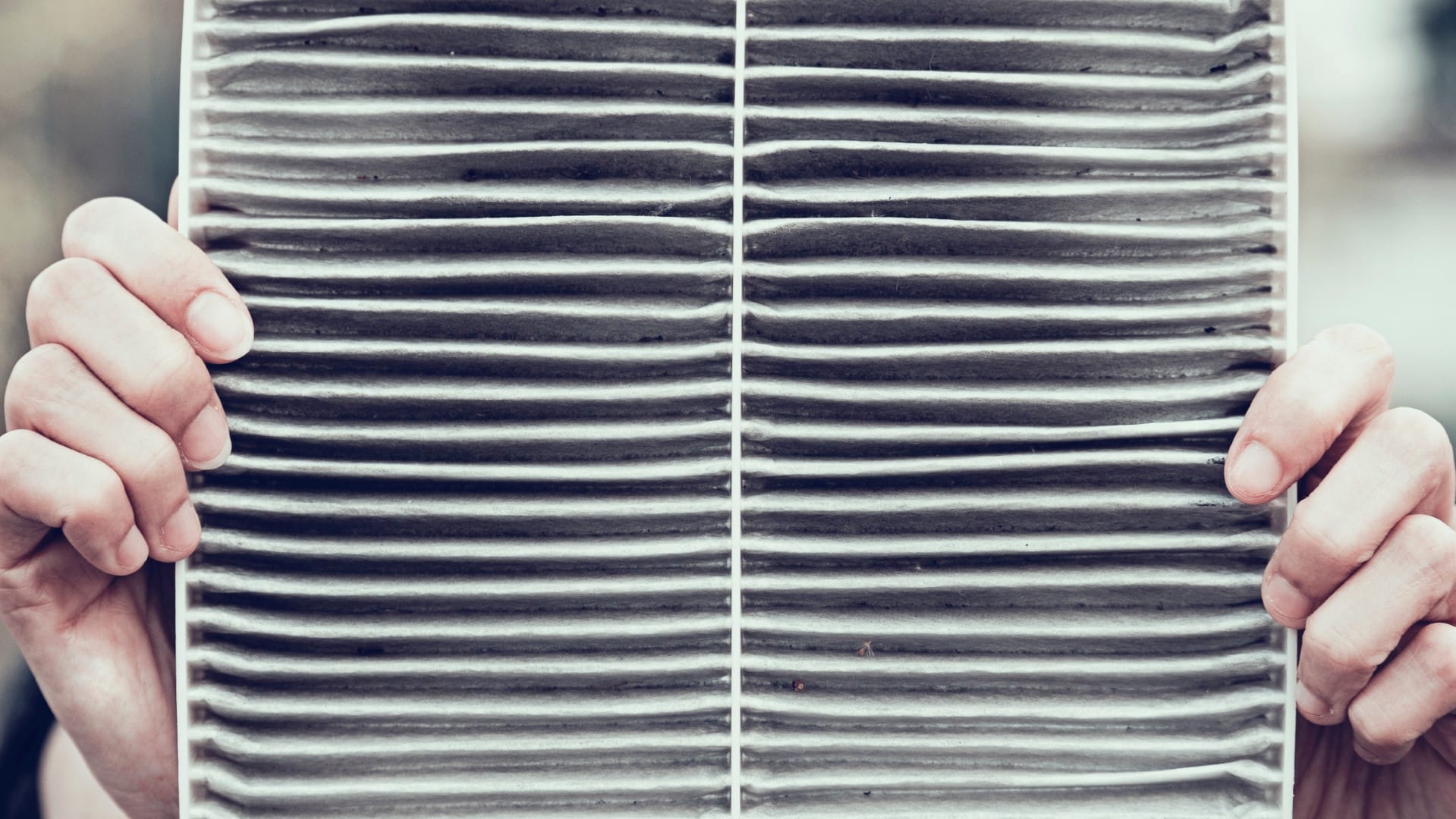While most air filters are unable to actually kills viruses, it is possible that you can trap tiny particles and then prevent them from circulating in the air.
Your home is the one place you should feel safe from coronavirus. After all, you’re not coming into contact with anyone from outside of your household. But germs can still get into your home.
Fortunately, you’re not alone in battling indoor air pollution. If you have a heating, ventilation and air conditioning system should be able to remove at least some of the particles that float around which may be harmful to us. But, will air filters kill viruses and other harmful particles?
In this article, we’ll take a look at how air filters work, and how you can avoid catching COVID 19 by keeping your HVAC system maintained and your filters cleaned.
How Do HVAC Filters Work?
Your HVAC system is designed to regulate the temperature of your home. It uses an air filter as part of this process. The filtration cycle starts with the air return vent. This is the vent that you will be able to see you on your ceiling or wall. A fan that is situated in your outdoor unit sucks the air through the air return vent. Before this air is redistributed through the air ducts, it is drawn through an air filter. An HVAC air filter is generally between one and five inches thick. It may be flat or pleated.
The major reason that the air is filtered is to protect the inner workings of your HVAC system from dirt, dust, and pet dander.
A HVAC air filter will only work when the HVAC system is running.
What Are The Different Types Of HVAC Filters?
Mechanical: Many people will have a disposable mechanical filter in their HVAC system. This type of filter may be made from fiberglass, polyester, or paper. A fiberglass filter is usually designed to pick up any larger particles such as pollen or dust. When a filter is pleated it may remove some of the smaller particles.
Electrostatic: Electrostatic filters are made of polyester. As air moves through them, it gets an electric charge. The static electricity attracts particles onto the filter.
This type of filter is often set in a metal frame. They need to be replaced less often that a disposable mechanical filter and can trap particles that are smaller than most mechanical filters.
Electronic: Electronic filters will use charged wires instead of a fibrous material. These will attract and trap particles. Electronic filters are fairly efficient but will require cleaning often.
HEPA: HEPA stands for high-efficiency particulate air, and a HEPA filter is a pleated mechanical filter. This type of filter are designed to remove 99.7% of all airborne particles. This type of filter is not generally found in home HVAC systems.
What Do HVAC Filters Do?
A good quality HVAC filter will remove more particles from the air than a basic filter. The way that you can tell how effective an air filter will be is to look at its minimum efficiency reporting value (MERV). The higher the MERV rating, the better the filtration of air will be.
Here is a breakdown of what you can expect from each rating:
1-4: This type of filter will be able to remove a percentage of particles that are sized between three and ten microns. 1,000 microns equals one millimeter- so these are very small particles. This is a low-efficiency rating and this type of filter is not designed to act as any form of air purifier. The purpose of this type of filter is to protect the HVAC system. This type of filter are often used in air conditioners and home furnaces.
5-13: This type of filter may be able to remove particles as small as one micron. These are considered to be of medium efficiency and can actually trap bacteria. Many air filters that are pleated will fall into this category.
14-16: This type of filter can remove particles from the air which are as small as 0.3 microns. These are high-efficiency air filters.
Depending on the MERV rating of your air filter you can expect your filter to pick up dust, pet dander, pollen, bacteria, viruses, and mold particles.
What Can You Do To Ensure Maximum Efficiency?
If you are concerned about the second wave of COVID19 and you want to improve your HVAC system there are several steps you can take.
If you are upgrading your HVAC system, find a filter with a high MERV rating. Typically this will be a pleated filter.
Be sure and clean your air filters regularly and replace them as recommended by the manufacturer.
Finally, ensure that you have your HVAC system regularly maintained by a HVAC professional to ensure maximum efficiency.





